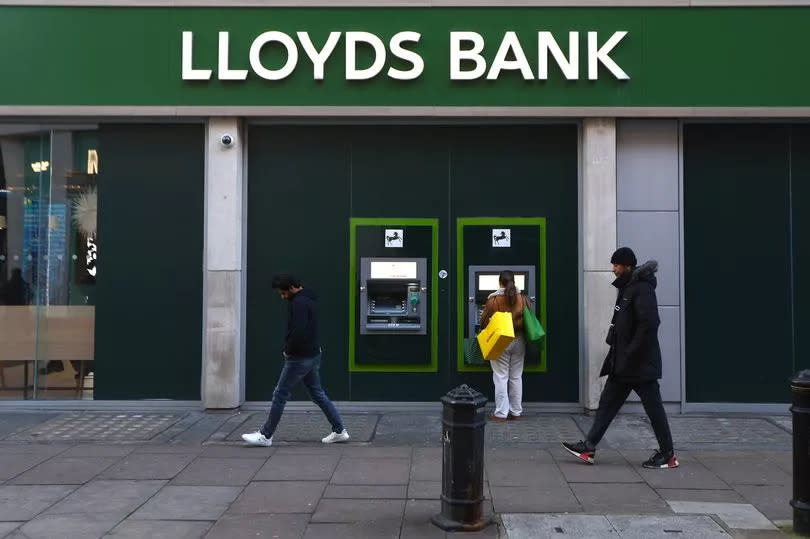Warning issued after Taylor Swift fans targeted with fake Eras Tour tickets on social media

Taylor Swift fans are being targeted by a wave of ticket scams on social media ahead of her long awaited return to the UK this summer. The Grammy Award winning musician will be coming back to the UK for the first time in six years for her 'Eras Tour'.
Supported by adored American rock band, Paramore, Swift will perform multiple shows in Edinburgh, London, Cardiff and Liverpool from June this year. Tickets went on sale in July last year and have already been sold out, however, it seems like Swifties are still being tricked into forking out hundreds for fake resale tickets with the hopes of seeing their pop idol.
READ MORE: Taylor Swift joins billionaire club following success of Era's Tour as she tops Forbes' rich list
An analysis of scam reports made by Lloyds Bank customers found a surge in fraud cases from those buying tickets for the Eras Tour.
The bank says that since tickets went on sale in July 2023, more than 600 customers have come forward to report being scammed , significantly more than for any other music artist. The average amount lost by each victim was £332, though in some cases it was more than £1,000.
As these figures are based solely on Lloyds Bank’s own customer data, it estimates that across the UK there are likely to have been at least 3,000 victims since tickets went on sale, with over £1 million being lost to fraudsters so far.
More than 90% of reported cases start with fake adverts or posts on Facebook, which includes Facebook Marketplace. A search of Facebook revealed dozens of unofficial groups have been set up, many with tens of thousands of members, specifically for people looking to buy and sell tickets for Taylor Swift concerts. Likewise
With all UK dates now sold out, many more fans are likely to fall victim to ticket scams in the coming weeks and months, both leading up to the tour and once the concerts begin in June.

The scourge of concert ticket scams
Lloyds Bank also looked more broadly at trends in concert ticket scams. It found that the number of reported scam cases relating to concert tickets more than doubled last summer compared to the same period a year earlier (up by +158%).
Among the other major artists most commonly targeted last summer were Coldplay, Harry Styles, and Beyonce. Across all concert ticket scams victims were losing £133 on average.
How a ticket purchase scam works
Purchase scams happen when someone is tricked into sending money via bank transfer (also known as a Faster Payment) to buy goods or services that don’t exist.
Ticket scams usually involve fake adverts, posts or listings on social media, offering tickets at discounted prices, or access to events which have already sold out at inflated prices.
Victims are asked to pay upfront for the tickets, but once the payment is made, the scammers disappear. This leaves the buyer without the tickets and out of pocket.
When tickets for an event are scarce, fraudsters know they can cash in on desperate fans willing to pay much more, by falsely claiming to have tickets for sale.
There are often two waves of fraud; the first when tickets go on sale and the second around the time an event takes place.

How to safely buy concert tickets:
Buy from trusted retailers – only purchase tickets from well-known, official ticket selling (or reselling) platforms. Take extra precautions when buying tickets from third-party sellers.
Be cautious on social media – you don’t know if the user profile or tickets are genuine. It’s easy for fraudsters to create fake ads including pictures of real tickets.
Avoid deals that look too good to be true – tickets for sale at low prices or for sold-out events should ring alarm bells. Ask yourself if the deal seems realistic.
Pay with your debit or credit card – this helps to protect your money should something go wrong. PayPal is another option that’s usually safer than paying by bank transfer.
Liz Ziegler, fraud prevention director at Lloyds Bank, said: “For her legion of dedicated Swifties, the excitement is building ahead of Taylor’s Eras Tour finally touching down in the UK this summer. However cruel fraudsters have wasted no time in targeting her most loyal fans as they rush to pick up tickets for her must-see concerts.
“It’s easy to let our emotions get the better of us when we find out our favourite artist is going to be performing live, but it’s important not to let those feelings cloud our judgement when trying to get hold of tickets.
“Buying directly from reputable, authorised platforms is the only way to guarantee you’re paying for a genuine ticket. Even then, always pay by debit or credit card for the greatest protection.
“If you’re being asked to pay by bank transfer, particularly from a seller you’ve found on social media, that should immediately set alarm bells ringing.”

 Yahoo News
Yahoo News 
